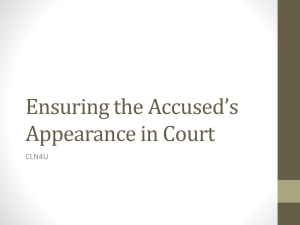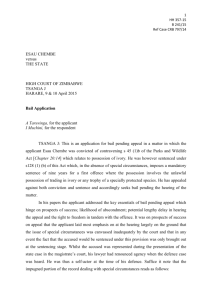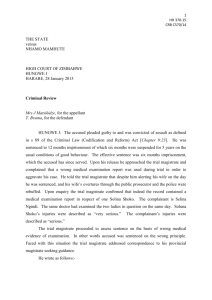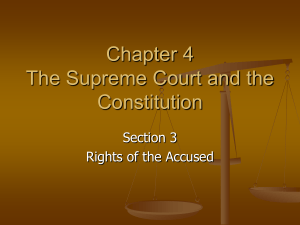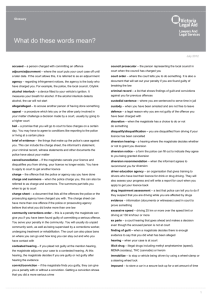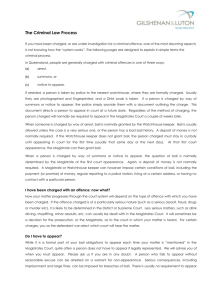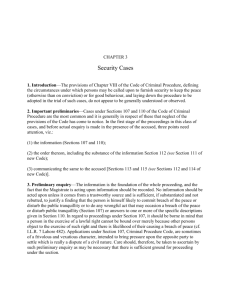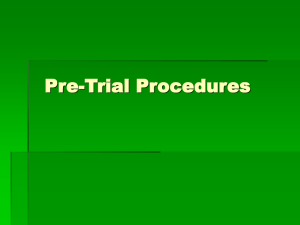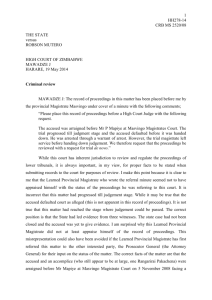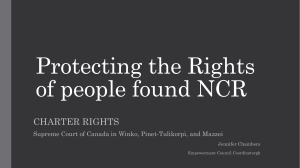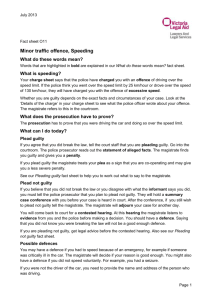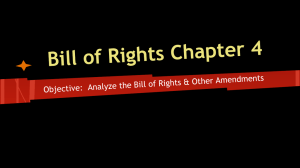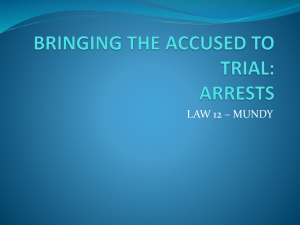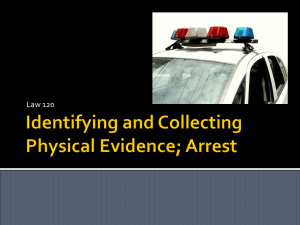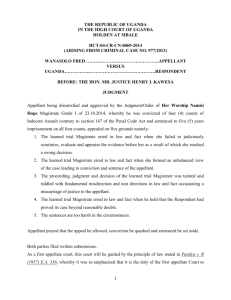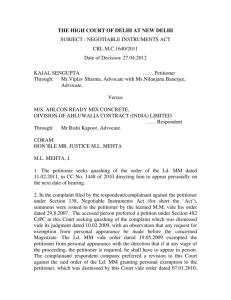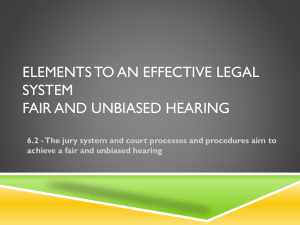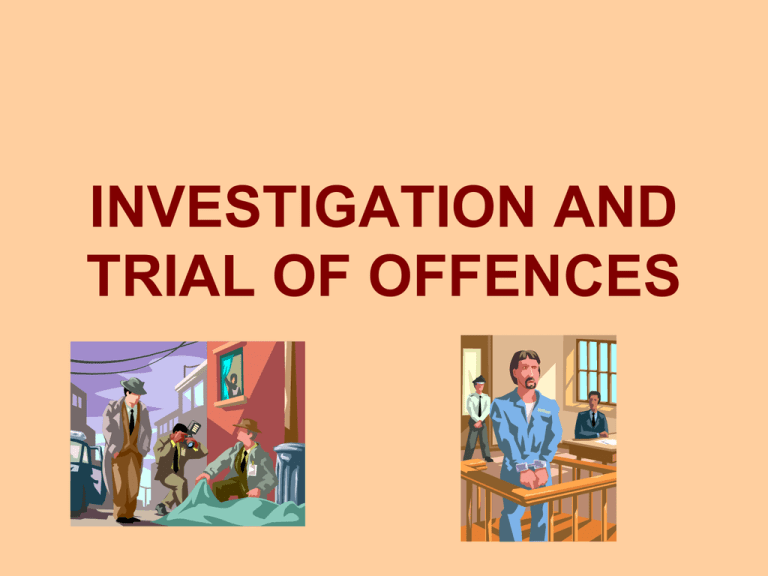
INVESTIGATION AND
TRIAL OF OFFENCES
INVESTIGATION OF
OFFENCES
Investigation
• F.I.R- Information of the commission of
cognizable offence given to the officer-incharge of the police station having
jurisdiction to investigate the offence.
• Officer-in-charge of the police station
conducts investigation
• Files police report or charge sheet along with
statements recorded and evidence collected
before the Magistrate having jurisdiction to
try the case.
• If no enough material is found to file a charge
sheet against the accused, the officer has to
send a report to that effect to the Magistrate
and release the accused on bail.
• Information
regarding
non-cognizable
offence, when given has to be entered in the
station diary and informant referred to the
Magistrate.
• Police officer has to maintain a case diary to
record the progress of the case investigated
by him on day-to-day basis.
• If the police officer refuses to register a
case, information can be sent to the
Superintendent of Police in writing by
post.
• Information regarding the commission
of an offence may be given in the form
of a complaint to the Magistrate, having
jurisdiction to try the case.
Bail
• Bail – Security for appearance before the
court for trial or examination when required.
• Bail mandatory in bailable offences.
• Bail mandatory in nonbailable offences
– When investigation is not completed
within the stipulated period
– When trial is not completed within the
stipulated period
– After trial, no ground to hold him guilty.
• Bail – Discretionary in the other cases.
• Factors to be taken into consideration:
– Gravity of the charge
– Nature of evidence against accusation
– Danger of evidence being tampered
– Likelihood of accused fleeing from justice
– Opportunity to prepare defence
– Health, age and sex of the accused.
Anticipatory Bail
• Anticipatory bail – Person having reason to
believe that he may be arrested for a
nonbailable offence may apply to the High
Court or Sessions court for anticipatory bail.
• Factors to be taken into consideration:
– Antecedents of the applicant, nature and
gravity of accusation, possibility of fleeing
from justice, whether accusation is made
to humiliate the applicant.
• Magistrate can take cognizance of a
case
– Upon a complaint
– Upon a police report
– Upon information given by any person
other than a police report
– Upon his own knowledge
• Compelling appearance of person –
processes
– Summons, Warrant of arrest
– Proclamation and Attachment of property
• Compelling production of things –
processes
– Summons, Search with warrant
– Search without warrant and Seizure
TRIAL OF OFFENCES
CONCEPT OF FAIR TRIAL
• Adversary system of criminal trial
• Presumption of innocence of the
accused
• Independent, impartial and competent
judges to try the accused in open court
• Venue of the trial
– place where offence is committed
• Right of the accused to know the
accusation
– Framing of charges
CONCEPT OF FAIR TRIAL
• Right to be defended
• Right to legal aid
• Evidence to be taken in the presence of
the accused
• Right
of
cross-examination
of
prosecution witnesses
• Right to produce evidence in his
defence
• Right to speedy trial
TRIAL OF OFFENCES
FOUR types of trails
• Trial by Court of Session
• Trial of Warrant cases
• Trial of Summons cases
• Summary Trial
TRIAL - Court of Session
• Cannot take cognizance of an offence
on its own
• Case has to be committed to it by a
Magistrate taking cognizance
TRIAL – Summons cases and
Summary trials
• Accused is informed of the accusation
made against him
• If he pleads guilty
– He may be convicted
• If he pleads not guilty
– Evidence of the prosecution and the
defence is taken
– Based on these, accused is
• Acquitted or
• Convicted of the offence
PROCEDURE FOR TRIAL
• Accused is brought before Magistrate
• Magistrate to ensure that all documents
and police report are furnished to him
• Magistrate to
– Examine the material placed
– Hear the prosecution and the accused
• If Magistrate feels that charges leveled
are groundless
– Discharge the accused
PROCEDURE FOR TRIALS
• If Magistrate feels that charges leveled
are not groundless
– Frames charges
– Explains the charges to the accused
– Asks him if he pleads guilty OR
– Fix date for examination of prosecution
witnesses and summon them
– Examine the prosecution witnesses on
date fixed
– Summon the defence witnesses and take
their evidence
PROCEDURE FOR TRIALS
• After considering all the evidence,
– if Magistrate feels that the accused is not
guilty
• Acquit him
– if Magistrate feels that the accused is
guilty
• Convict him
• Give a hearing to accused on sentence
– Release him on probation if permitted by
law or
– Pass a sentence

